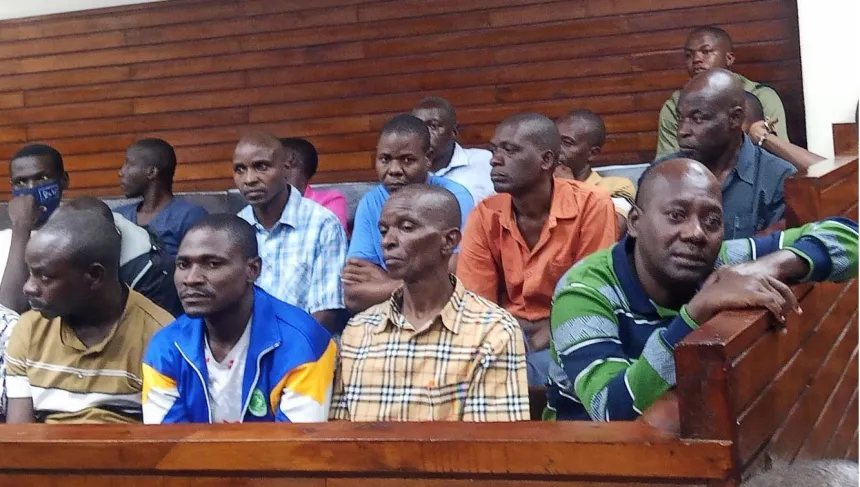The High Court in Mombasa has adjourned the murder trial of controversial preacher Paul Nthenge McKenzie and 28 co-accused following the prosecution’s revelation of fresh evidence in the case. The trial, which resumed on Monday, will now continue on Wednesday when four witnesses are expected to testify.
McKenzie and his co-accused face multiple murder charges in connection with the Shakahola cult tragedy, one of Kenya’s worst mass killings in recent history. More than 400 people, including children, reportedly died after allegedly being instructed by the preacher to starve themselves to death in order to “enter heaven” before the world’s end.
Prosecutors Alex Ndiema and Victor Simbi told Lady Justice Diana Kavedza that investigators had uncovered new leads that could expand the scope of the case. The fresh evidence, they said, may lead to the inclusion of more suspects and an increase in the number of witnesses.
“The investigators have gathered new evidence, which will lead to the inclusion of additional suspects and more witnesses to testify against the accused,” Mr Ndiema told the court.
The prosecution requested more time to complete investigations, assuring the judge that the move was not intended to delay proceedings. “We wish to assure the court that this application is purely aimed at ensuring thorough investigations are conducted,” Mr Simbi added.
According to the prosecution, DNA collection and analysis are still underway, with the possibility of reviewing or amending the charge sheet once results are in. Any such changes, they noted, would be addressed during pre-trial proceedings.
Justice Kavedza granted the adjournment, scheduling the next hearing for Wednesday. The court is expected to give further directions once the fresh evidence is formally presented and preliminary matters are settled.
The Shakahola tragedy has drawn widespread national and international condemnation, with human rights groups calling for accountability and stronger oversight of religious organisations in Kenya. The case has also reignited debate over the regulation of faith-based movements, especially those accused of exploiting vulnerable followers.
As the trial progresses, the families of victims and survivors continue to seek justice, hoping the proceedings will reveal the full truth behind the mass deaths in the secluded Shakahola forest.

